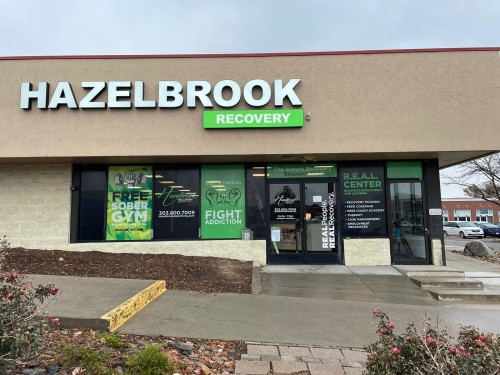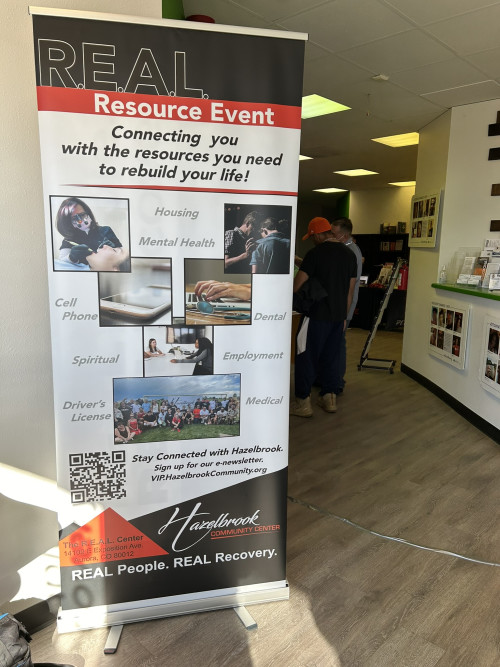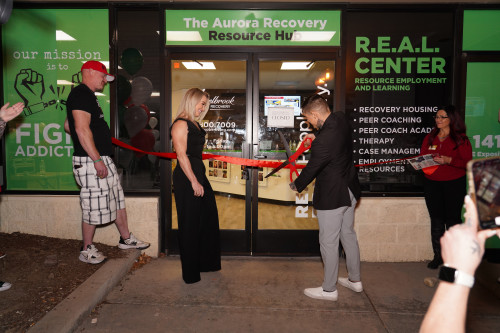





Hazelbrook Sober Living & Recovery
Treatment Focus
This center primarily treats substance use disorders, helping you stabilize, create relapse-prevention plans, and connect to compassionate support.
Primary Level of Care
Transitional housing designed to support individuals recovering from substance use disorders offering a safe, supportive and structured environment for practicing long-term sobriety, while reintegrating back into daily living.
Claimed
Recovery.com has connected directly with this treatment provider to validate the information in their profile.
Treatment Focus
This center primarily treats substance use disorders, helping you stabilize, create relapse-prevention plans, and connect to compassionate support.
Primary Level of Care
Transitional housing designed to support individuals recovering from substance use disorders offering a safe, supportive and structured environment for practicing long-term sobriety, while reintegrating back into daily living.
Provider's Policy
We accept Medicaid for our recovery coaching services and outpatient treatment. We also accept cash, credit/debit cards, money orders, cashiers check, Venmo, CashApp, or PayPal.
Hazelbrook Sober Living & Recovery
Hazelbrook Sober Living & Recovery
About Hazelbrook Sober Living & Recovery
Hazelbrook Sober Living & Recovery offers sober living residences and recovery services in the Denver, Colorado Springs, Aurora, and Pueblo areas. They provide a structured environment to facilitate lasting recovery from substance use.
The program offers 35 gender-specific homes for men and women, situated in suburban neighborhoods. Their men's homes operate in Aurora, Westminster, Arvada, Denver, Thornton, Lakewood, Englewood, Colorado Springs, and Pueblo. Their women's houses are in Aurora, Arvada, Denver, and Colorado Springs.
Eligibility
Hazelbrook admits clients 18+ seeking recovery from drugs, including clients with many co-occurring behavioral addictions or mental health disorders. They don't admit clients with sex crime convictions or mental health disorders.
House Rules
At the beginning, clients must be at the house by 10 p.m. each night and must attend a weekly house meeting. They must attend 5 recovery meetings a week. The meetings can be ones that Hazelbrook hosts or that an outside organization hosts. One guest can visit newer clients during the week and must leave by 10 p.m.
After clients demonstrate progress in their recovery and make consistent on-time rent payments, Hazelbrook relaxes some of the rules. They receive an 11 p.m. curfew on weekdays and a 1 a.m. curfew on weekends. Clients can reduce their frequency of recovery meetings to 3 times a week. A guest can still visit clients each week, but they can now stay overnight with a manager's approval.
Community & Resources
Clients can come to Hazelbrook's ParadigmONE dojo for fun sober activities, such as boxing, art classes, music classes, weightlifting, and chess. For additional services, Hazelbrook's Resource Employment and Learning (R.E.A.L.) Center offers peer support and therapy to aid in recovery.
Hazelbrook also operates several intensive outpatient (IOP) programs, and these meetings can count toward the weekly requirements for their sober living program. Each program has 5 meetings a week, and most include a mix of talk therapy, relapse prevention counseling, and medication management.
The recovery meetings include options for holistic health and fitness support, 12-Step Facilitation meetings, non-12-Step meetings for both drug and behavioral addictions, food addiction groups, Bible studies, self-care strategy meetings, art therapy classes, women's groups, and men's groups.

Center Overview
Treatment Focus
This center primarily treats substance use disorders, helping you stabilize, create relapse-prevention plans, and connect to compassionate support.
Insurance Accepted
Cash Pay Rates
Estimated Cash Pay Rate
Center pricing can vary based on program and length of stay. Contact the center for more information. Recovery.com strives for price transparency so you can make an informed decision.
Levels of Care





Your Care Options
Specializations
Alcohol
Using alcohol as a coping mechanism, or drinking excessively throughout the week, signals an alcohol use disorder.
Drug Addiction
Drug addiction is the excessive and repetitive use of substances, despite harmful consequences to a person's life, health, and relationships.
Holistic
A non-medicinal, wellness-focused approach that aims to align the mind, body, and spirit for deep and lasting healing.
Twelve Step
Incorporating spirituality, community, and responsibility, 12-Step philosophies prioritize the guidance of a Higher Power and a continuation of 12-Step practices.
Who We Treat
Approaches
Spiritual Emphasis
Spirituality connects patients to a higher power and helps strengthen their recovery, hope, and compliance with other treatment modalities.
Evidence-Based
A combination of scientifically rooted therapies and treatments make up evidence-based care, defined by their measured and proven results.
Holistic
A non-medicinal, wellness-focused approach that aims to align the mind, body, and spirit for deep and lasting healing.
Christian
Through surrender and commitment to Christ, patients refocus the efforts and source of their recovery with clinical and spiritual care.
Non 12 Step
Non-12-Step philosophies veer from the spiritual focus of the 12-Steps and instead treat the disease of addiction with holistic or secular modalities.
Twelve Step
Incorporating spirituality, community, and responsibility, 12-Step philosophies prioritize the guidance of a Higher Power and a continuation of 12-Step practices.
Gender-Specific
Separate treatment for men or women can create strong peer connections and remove barriers related to trauma, shame, and gender-specific nuances.
Therapies
Art Therapy
Visual art invites patients to examine the emotions within their work, focusing on the process of creativity and its gentle therapeutic power.
Life Skills
Teaching life skills like cooking, cleaning, clear communication, and even basic math provides a strong foundation for continued recovery.
Music Therapy
Singing, performing, and even listening to music can be therapeutic. Music therapy sessions are facilitated by certified counselors.
Twelve Step Facilitation
12-Step groups offer a framework for addiction recovery. Members commit to a higher power, recognize their issues, and support each other in the healing process.
Yoga
Yoga is both a physical and spiritual practice. It includes a flow of movement, breathing techniques, and meditation.
Substances We Treat
Alcohol
Using alcohol as a coping mechanism, or drinking excessively throughout the week, signals an alcohol use disorder.
Drug Addiction
Drug addiction is the excessive and repetitive use of substances, despite harmful consequences to a person's life, health, and relationships.
Languages
Aftercare
Care Designed for Your Needs
Personal Amenities
Amenities
Special Considerations
Gender-specific groups
Patients in gender-specific groups gain the opportunity to discuss challenges unique to their gender in a comfortable, safe setting conducive to healing.
Activities
Yoga
Yoga is both a physical and spiritual practice. It includes a flow of movement, breathing techniques, and meditation.





